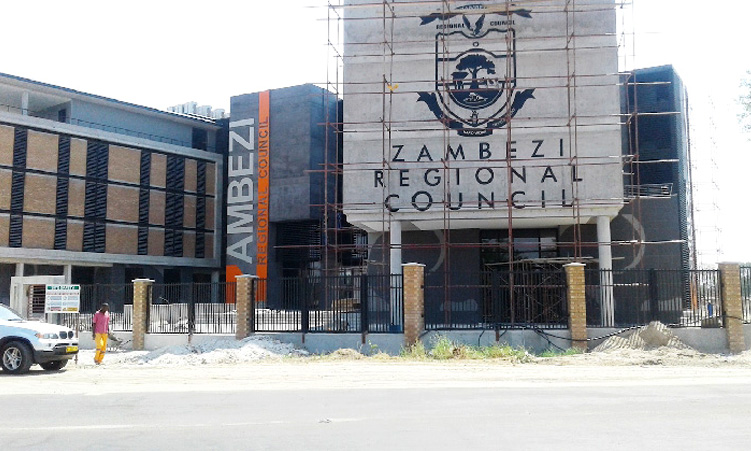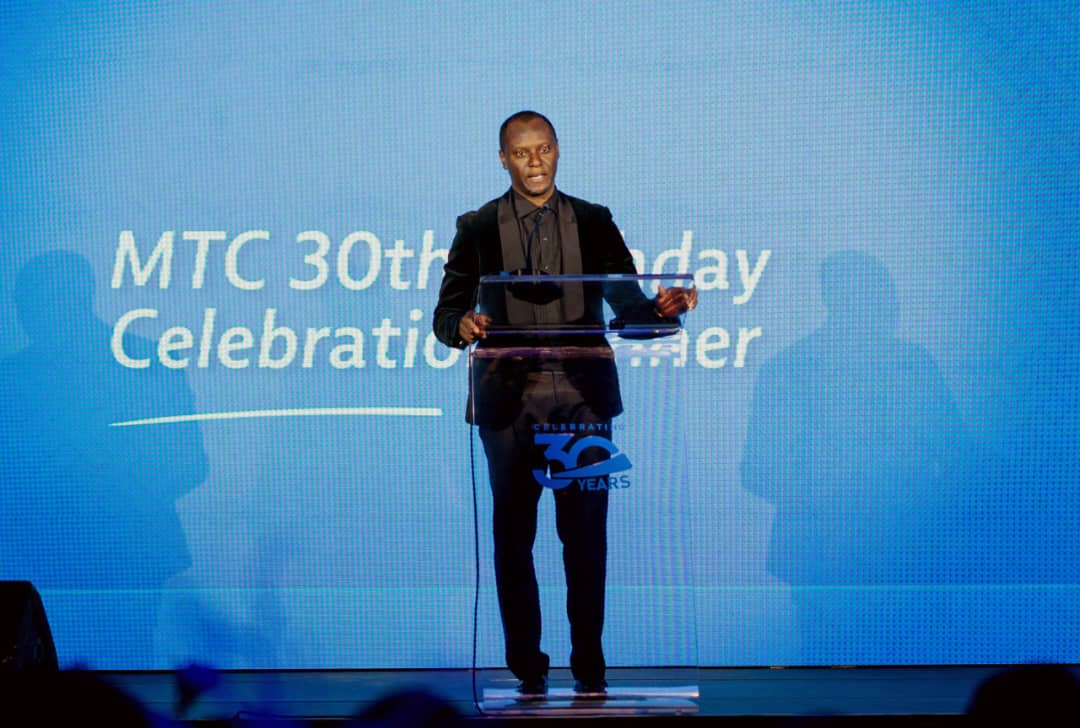AS the ODC continues to throw a veil of secrecy around who was responsible for investing nearly N$100 million in public funds through the Offshore Development Company with little-known Great Triangle Investments, it also remains uncertain whether that money is in fact traceable in South Africa.
ODC officials are still not letting the public in on what, if any, progress they have made in tracking the money. They maintain it will jeopardise their efforts.That aside, there appears to be no haste on the part of officials to provide answers to questions related to the Namibian end of the deal – which would not affect the hunt for the millions – such as who authorised the deal, who brokered it and on what basis.BLAME GAME In South Africa, the ball of blame is being thrown from one person to another.Yesterday, the man Great Triangle Investment director Philip Fourie fingered as the person who handled the ODC transaction, Tertius Theart, refused to comment on the matter, maintaining that it was now sub judice.When contacted by The Namibian, he said enough had been said about his alleged involvement in the media.”People are handling it,” is all he would say.Earlier he told the East London- based newspaper The Daily Dispatch: “Why Philip Fourie said so [that he was involved], I don’t know but I will take it up with him.My connection with Great Triangle Investments is a private situation.How I am connected is confidential.But I am not prepared to debate this issue in the media.”With each new piece of information gleaned on who pulled off the deal, more questions arise.The Namibian has requested feedback and is still awaiting responses from the Minister of Trade and Industry, Immanuel Ngatjizeko, under whom the ODC falls, the Chairperson of of the ODC Board, Gerdus Burmeister, and the ODC lawyer charged with tracking the money, Andrew Theunissen.The office of ODC CEO Abdool Sattar Aboobakar said he would only be back in his office in about two weeks.He returned to Namibia a fortnight ago, but has not returned to his office.In its only form of communication with the public more than three weeks ago, the ODC board said it was “negotiating” a repayment schedule for the investment.However, since that announcement, South Africa’s special investigating team the Scorpions has been roped in to track the money.But the public remains none the wiser as to who exactly was responsible for clinching the investment and who signed off on the deal.The ODC millions were invested over a period of two years.It is believed that despite his denials, Theart was in fact the man who had dealings with ODC officials even though he is not listed as a director on the company file in Botswana where the company is registered.Fourie is also believed to have lesser, intermittent contact with ODC officials.Last week, The Namibian revealed that Fourie was a former CEO of the Amatola Water Board, from which he was suspended in 2000 for attempted fraud.He resigned in January 2001, before he could appear before a disciplinary hearing for allegedly attempting to cede N$1,6 billion in water board assets to secure private transactions.Last week The Daily Dispatch reported that a company search had revealed that Fourie and Theart served together as directors of at least 13 companies.One of the companies, La Gratitude Property Holdings, was taken to the Cape High Court in April to be liquidated at the request of Federated Timbers.Theart, resident in the Western Cape, is also the owner of the Hawthorndene Country Inn and Beefeater Restaurant in George, South Africa.According to an advertisement for the guesthouse, it was “saved only hours from the auctioneer’s final hammer by new owners and management”.MOVING THE MONEY But exactly where the ODC money is remains shrouded in mystery.It is strongly believed that most of the money invested by the ODC in fact came from the Namibia Development Corporation (NDC), scheduled for closure by the end of the year, and from the Ministry of Trade and Industry itself, under which the ODC falls.In terms of the Bank of Namibia’s foreign exchange division, commercial banks need to obtain its approval before making offshore transfers on behalf of their clients, but not so if the money stays within the Common Monetary Area, which in the case of Namibia extends to South Africa, Lesotho and Swaziland.Currently any company wishing to conduct a foreign investment transaction may not transfer more than N$750 million.The Bank of Namibia’s Manager of Exchange Control, Sylvia Shikongo, told The Namibian that the BoN would soon be able to monitor all cross-border foreign exchange transactions and transactions within the CMA.”We don’t want CMA members to be used as a conduit for capital outflow,” said Shikongo.She said if money was transferred within the CMA, it could easily be transferred even further afield without the BoN being privy to its movements.They maintain it will jeopardise their efforts.That aside, there appears to be no haste on the part of officials to provide answers to questions related to the Namibian end of the deal – which would not affect the hunt for the millions – such as who authorised the deal, who brokered it and on what basis.BLAME GAME In South Africa, the ball of blame is being thrown from one person to another.Yesterday, the man Great Triangle Investment director Philip Fourie fingered as the person who handled the ODC transaction, Tertius Theart, refused to comment on the matter, maintaining that it was now sub judice.When contacted by The Namibian, he said enough had been said about his alleged involvement in the media.”People are handling it,” is all he would say.Earlier he told the East London- based newspaper The Daily Dispatch: “Why Philip Fourie said so [that he was involved], I don’t know but I will take it up with him.My connection with Great Triangle Investments is a private situation.How I am connected is confidential.But I am not prepared to debate this issue in the media.”With each new piece of information gleaned on who pulled off the deal, more questions arise.The Namibian has requested feedback and is still awaiting responses from the Minister of Trade and Industry, Immanuel Ngatjizeko, under whom the ODC falls, the Chairperson of of the ODC Board, Gerdus Burmeister, and the ODC lawyer charged with tracking the money, Andrew Theunissen.The office of ODC CEO Abdool Sattar Aboobakar said he would only be back in his office in about two weeks.He returned to Namibia a fortnight ago, but has not returned to his office.In its only form of communication with the public more than three weeks ago, the ODC board said it was “negotiating” a repayment schedule for the investment.However, since that announcement, South Africa’s special investigating team the Scorpions has been roped in to track the money.But the public remains none the wiser as to who exactly was responsible for clinching the investment and who signed off on the deal.The ODC millions were invested over a period of two years.It is believed that despite his denials, Theart was in fact the man who had dealings with ODC officials even though he is not listed as a director on the company file in Botswana where the company is registered.Fourie is also believed to have lesser, intermittent contact with ODC officials.Last week, The Namibian revealed that Fourie was a former CEO of the Amatola Water Board, from which he was suspended in 2000 for attempted fraud.He resigned in January 2001, before he could appear before a disciplinary hearing for allegedly attempting to cede N$1,6 billion in water board assets to secure private transactions.Last week The Daily Dispatch reported that a company search had revealed that Fourie and Theart served together as directors of at least 13 companies.One of the companies, La Gratitude Property Holdings, was taken to the Cape High Court in April to be liquidated at the request of Federated Timbers.Theart, resident in the Western Cape, is also the owner of the Hawthorndene Country Inn and Beefeater Restaurant in George, South Africa.According to an advertisement for the guesthouse, it was “saved only hours from the auctioneer’s final hammer by new owners and management”. MOVING THE MONEY But exactly where the ODC money is remains shrouded in mystery.It is strongly believed that most of the money invested by the ODC in fact came from the Namibia Development Corporation (NDC), scheduled for closure by the end of the year, and from the Ministry of Trade and Industry itself, under which the ODC falls.In terms of the Bank of Namibia’s foreign exchange division, commercial banks need to obtain its approval before making offshore transfers on behalf of their clients, but not so if the money stays within the Common Monetary Area, which in the case of Namibia extends to South Africa, Lesotho and Swaziland.Currently any company wishing to conduct a foreign investment transaction may not transfer more than N$750 million.The Bank of Namibia’s Manager of Exchange Control, Sylvia Shikongo, told The Namibian that the BoN would soon be able to monitor all cross-border foreign exchange transactions and transactions within the CMA.”We don’t want CMA members to be used as a conduit for capital outflow,” said Shikongo.She said if money was transferred within the CMA, it could easily be transferred even further afield without the BoN being privy to its movements.
Stay informed with The Namibian – your source for credible journalism. Get in-depth reporting and opinions for
only N$85 a month. Invest in journalism, invest in democracy –
Subscribe Now!










